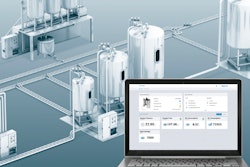Automation technology advancements have increased so quickly in the last decade, that the speed and quantity of new information can be overwhelming to manufacturers. A lack of internal knowledge and expertise about new advancements can hamper automation expansion, and while some larger enterprises may have dedicated teams of experts whose sole responsibility is to stay abreast of new developments and applications, many small or medium sized manufacturers do not.
See: COVID-19 Lessons Learned: Overly Lean Organizations Are Less Resilient
See: Strengthening OEM Supply Chains for Challenging Times
A new report by PMMI Business Intelligence states that this lack of internal resources provides an opportunity for OEMs and suppliers to partner with their customers and assist manufacturers who are struggling to identify automation projects. Providing ongoing, regular education to their customers to help them stay aware of new automation technology developments and applications for components can build stronger relationships. Educational workshops (particularly in a virtual setting during the COVID-19 pandemic), allow OEMs and suppliers to engage with engineers and can be beneficial not only to the manufacturer, but also to the OEMs and suppliers who are then able to showcase their own advancements and suggest solutions that the manufacturer may not be aware of.
There is also an opportunity to outsource line integration and monitoring by taking some of the responsibility for automation projects out of the hands of the manufacturer. Manufacturers who are strapped for resources can benefit from condition-based monitoring of their equipment. OEMs and suppliers can demonstrate their value to manufacturers by expanding their offerings into data monitoring along with integration services, since installing, troubleshooting, and monitoring new automation technology, especially when added to existing operations, is both time consuming and challenging for many manufacturers.
Larger OEM enterprises should consider offering full integration services – connecting disparate lines, upgrading legacy technology, and integrating standalone machines. Smaller OEMs and suppliers with fewer resources at their disposal can offer ease-of-use additions to machines, such as adaptable software and flexible physical configurations, and still greatly assist manufacturers in integrating new automation technologies into their existing operations.
The report states that the biggest priority of OEMs and suppliers in these roles, should be to “position themselves as full-service automation partners at their clients’ disposal by understanding their ins and outs on the plant floor. By taking a leading role on automation and proactively keeping their customers informed and educated, OEMs and suppliers can increase their value to their customers and build stronger working relationships. Some OEMs and suppliers may even consider taking services a step further and offering integration expertise along the entire line, strengthening trust by identifying and installing new automation technology in partnership with manufacturers.”
To access this FREE report and learn more about automation in operations, download below.
Source: PMMI Business Intelligence, “Automation Timeline: The Drive Toward 4.0 Connectivity in Packaging and Processing”
Join us for “The Most Engaging Virtual Event for the Entire Industry” at PACK EXPO Connects, November 9-13. Live demos of equipment and products, live chat with product experts, expedited product search, and more. Attendee registration opens September 15. Be notified when the site goes live by clicking here.

























